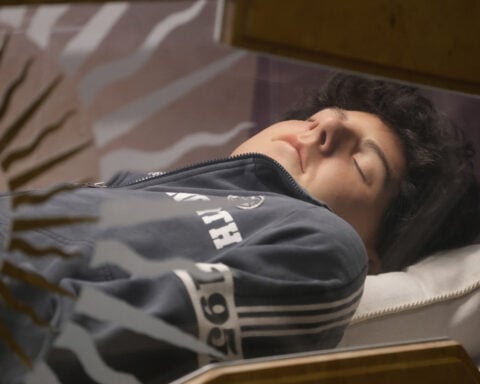Young Americans are redefining the American dream, trading white picket fences for mental health and financial security, according to a new study from the University of California, Los Angeles. The study reveals while 86% of young people want to achieve the American dream, 60% doubt they will ever get there. It's not a lack of ambition but worries about money that stand in their way.
UCLA's Center for Scholars & Storytellers asked 1,500 people ages 14 to 27 about their hopes and fears. The group matched U.S. Census figures for race and gender. Money stands in their way, the study found. Those with less money were likelier to say the American dream is out of reach.
"Young people today still really want financial security and independence, but many feel like the cards are stacked against them and the system is rigged," said Yalda Uhls, who runs the center and teaches psychology at UCLA.
Half the young people said social media, primarily Instagram, TikTok, and YouTube, shapes how they see the American dream more than TV, movies, or news.
Social media influences young people's perspectives on the American Dream by showcasing opulent lifestyles and establishing unrealistic expectations. Although it promotes alternative career paths and financial literacy, the constant display of curated success leads to frustration and self-doubt among young people.
When asked who they look up to, they often name Elon Musk and Donald Trump. They also named Kim Kardashian, Mr. Beast, Bill Gates, Mark Zuckerberg, and Mark Cuban as their role models.
Young people want different things than their parents did. Good health and financial stability are at the top of their list. Buying homes, getting married, and having kids matter less to them now.
"For many people in my generation, homeownership feels completely out of the realm of possibility, and the idea of having kids when we cannot afford to take care of ourselves seems ridiculous, if not immoral," Atlas Burrus, who wrote about the study, said.
Three in four young people agreed it's harder for their generation to find happiness than it was for past generations. They want to see this struggle shown on TV and in movies. More than half said they are tired of seeing fake, easy lifestyles on screen.
Many face real money problems, said Alisha Hines, who led the research. "The reality is approximately one in three adolescents live in families at less than twice the federal poverty line, and over half of Gen Zers say they are extremely worried about not having enough money and feel anxious or on-edge nearly every day," she said.
Money worries hit some harder than others. Young people from poorer families were less hopeful about reaching the American dream, matching what Pew Research found about low-income Americans of all ages.
To attain financial stability, people should prioritize financial literacy, develop high-income skills, and explore supplementary income streams, according to Forbes. Budgeting, investing, and maintaining good credit are crucial components of financial health.
Related Articles:
- Colombia migrants decry degrading treatment, but American dream remains for some
- With home prices and mortgage rates high, many families find the American dream out of reach
- Tech founder pledges to give away half his wealth to make the American dream more possible
- Is the American Dream achievable? These students are examining its promises and pitfalls
- For one Honduran single mom fleeing threats, Trump dashes American dream

 Trump has begun another trade war. Here's a timeline of how we got here
Trump has begun another trade war. Here's a timeline of how we got here
 Canada's leader laments lost friendship with US in town that sheltered stranded Americans after 9/11
Canada's leader laments lost friendship with US in town that sheltered stranded Americans after 9/11
 Chinese EV giant BYD's fourth-quarter profit leaps 73%
Chinese EV giant BYD's fourth-quarter profit leaps 73%
 You're an American in another land? Prepare to talk about the why and how of Trump 2.0
You're an American in another land? Prepare to talk about the why and how of Trump 2.0
 Chalk talk: Star power, top teams and No. 5 seeds headline the women's March Madness Sweet 16
Chalk talk: Star power, top teams and No. 5 seeds headline the women's March Madness Sweet 16
 Purdue returns to Sweet 16 with 76-62 win over McNeese in March Madness
Purdue returns to Sweet 16 with 76-62 win over McNeese in March Madness








